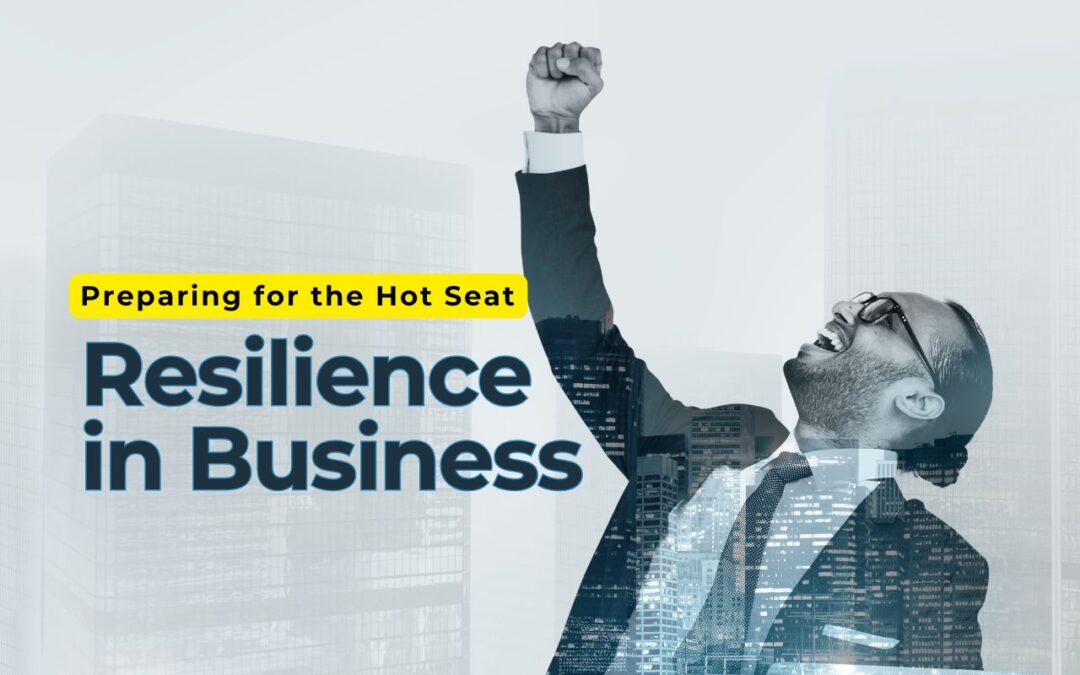As an entrepreneur, business owner, or leader, you’re bound to face challenges and tough situations that may feel like you’re in the “hot seat.” Whether it’s navigating a financial crisis, managing a team through tough times, or responding to a sudden market shift, resilience is the key to enduring and thriving in these moments. Building resilience in business isn’t about avoiding stress or difficult situations; it’s about developing the mental, emotional, and strategic tools to bounce back stronger than before. Here’s how you can prepare for the hot seat and build resilience in your business.
1. Develop a Growth Mindset
A resilient leader believes in their ability to grow and adapt, even in the face of adversity. Cultivating a growth mindset allows you to approach challenges not as setbacks, but as opportunities to learn. Encourage your team to adopt this mindset as well by focusing on problem-solving and continuous improvement.
Actionable Tips:
- Embrace challenges as opportunities for growth.
- View failure as a stepping stone toward success.
- Foster a culture of learning and experimentation within your team.
2. Build a Strong Support Network
No one achieves success alone. A strong support network is vital for resilience in business. Surround yourself with mentors, advisors, peers, and a trusted team who can offer advice, encouragement, and perspective when times get tough. Having a support system can provide the emotional boost and strategic guidance necessary to weather the storm.
Actionable Tips:
- Regularly check in with your mentors or business advisors.
- Join business groups or networks where you can share experiences and advice.
- Develop a trusted leadership team that can lean on each other during challenges.
3. Focus on Self-Care and Mental Wellbeing
Stress and pressure are inevitable in business, but how you handle them can determine your long-term success. Prioritizing self-care and mental health can help you maintain clarity, focus, and emotional balance when under pressure. Resilience starts from within, and managing your stress levels will ensure you’re able to lead effectively.
Actionable Tips:
- Establish a daily routine that includes time for relaxation, exercise, and sleep.
- Practice mindfulness or meditation to keep stress at bay.
- Encourage your team to prioritize work-life balance to maintain collective wellbeing.
4. Create a Crisis Management Plan
Having a crisis management plan in place can help you stay calm and strategic during high-pressure situations. This plan should outline the steps to take when facing a crisis, assign roles to your team members, and define key actions for minimizing damage and recovering quickly.
Actionable Tips:
- Develop a crisis communication plan to ensure clear and transparent messaging with all stakeholders.
- Regularly update your crisis management plan to reflect current business challenges.
- Conduct simulations or “fire drills” to practice handling crises.
5. Embrace Agility and Flexibility
One of the hallmarks of resilient businesses is their ability to pivot when necessary. The world of business is dynamic, and situations can change quickly. Being agile and open to new strategies, technologies, or business models allows you to adapt and continue moving forward, even when things don’t go according to plan.
Actionable Tips:
- Foster a culture of adaptability and continuous innovation.
- Regularly assess and adjust your business strategies to stay aligned with changing markets and customer needs.
- Encourage creativity and problem-solving within your team.
6. Set Realistic and Achievable Goals
Resilience is easier to build when you have a clear sense of purpose and direction. Set realistic goals that are both challenging and attainable, and break them down into manageable steps. Achieving small milestones will build your confidence and momentum, which will keep you motivated through tough times.
Actionable Tips:
- Use SMART goals (Specific, Measurable, Achievable, Relevant, Time-bound) to clarify your objectives.
- Regularly review and adjust your goals based on your progress and changing circumstances.
- Celebrate small wins to maintain morale and drive.
7. Learn from Past Challenges
One of the best ways to build resilience is to reflect on past challenges and learn from them. Take the time to analyze what worked, what didn’t, and how you can improve for next time. Resilient leaders view setbacks as valuable lessons, not as failures.
Actionable Tips:
- After a difficult situation, conduct a post-mortem or debrief with your team to discuss lessons learned.
- Identify patterns or trends in challenges to anticipate and prepare for similar situations in the future.
- Use these lessons to refine your strategies and improve your decision-making.
8. Cultivate Patience and Perseverance
Building resilience in business takes time. It’s about developing the stamina to keep going, even when progress seems slow. Patience and perseverance are essential qualities of resilient leaders. By focusing on the long-term vision and staying committed through adversity, you position yourself for sustained success.
Actionable Tips:
- Break down long-term goals into smaller, manageable tasks.
- Remind yourself regularly of the bigger picture and why you’re working hard.
- Stay persistent, even when immediate results are not visible.
Conclusion
Resilience is not an innate trait, but a skill that can be developed and honed over time. By adopting a growth mindset, building a support network, focusing on self-care, and staying adaptable, you can prepare yourself for the inevitable challenges of running a business. When you’re resilient, the “hot seat” becomes a temporary challenge rather than an overwhelming obstacle, allowing you to thrive in the face of adversity and continue driving your business forward.












